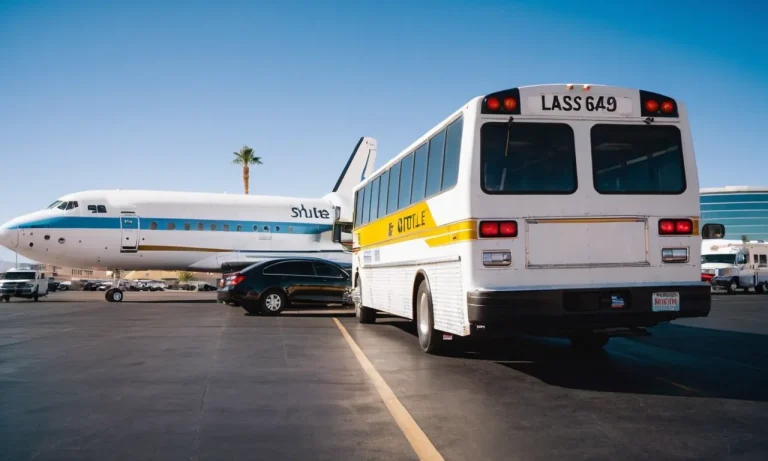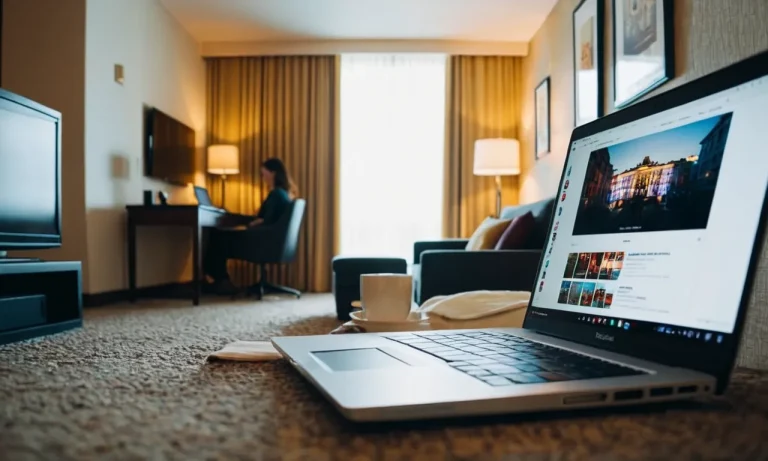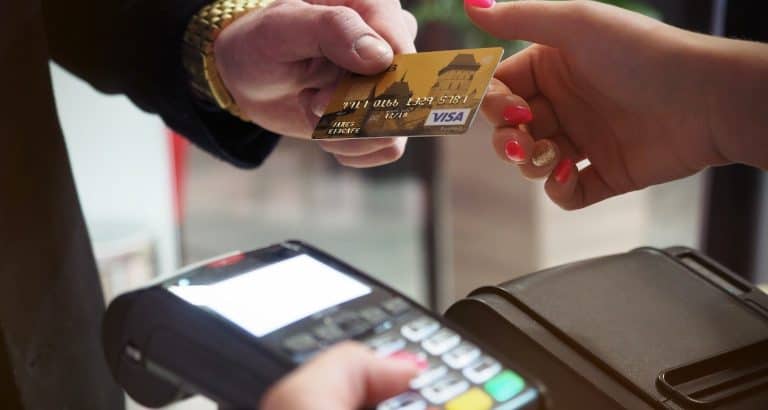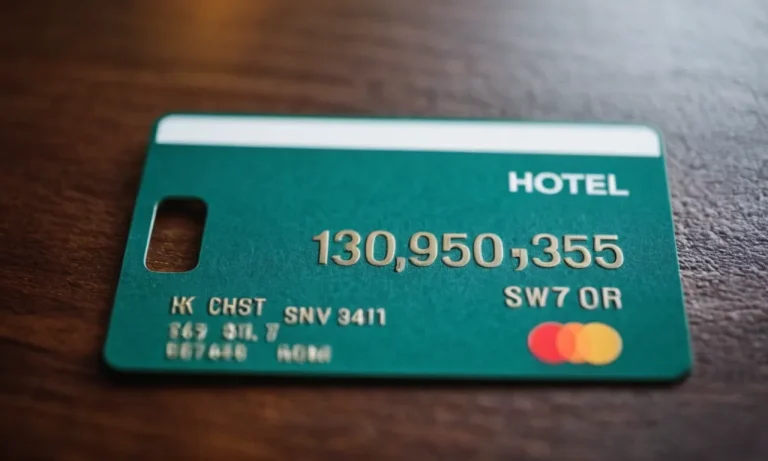Why is Hotel WiFi So Slow? A Comprehensive Guide
Imagine this: you’ve just checked into a luxurious hotel, eager to unwind and catch up on work or entertainment. But as soon as you connect to the WiFi, your excitement fades as you’re met with a frustratingly slow internet connection.
This scenario is all too familiar for many travelers, leaving them wondering, “Why is hotel WiFi so slow?”
If you’re short on time, here’s a quick answer to your question: Hotel WiFi can be slow due to a variety of reasons, including an overloaded network, outdated infrastructure, poor network design, and inadequate bandwidth allocation.
In this comprehensive guide, we’ll delve into the root causes of sluggish hotel WiFi, explore potential solutions, and provide tips to help you navigate this common issue during your stays. Whether you’re a business traveler or a leisure seeker, understanding the factors behind slow hotel WiFi can help you make informed decisions and potentially improve your online experience.
Network Congestion: Too Many Devices, Not Enough Bandwidth
Hotel WiFi is often plagued by sluggish speeds, leaving guests frustrated and unable to stream videos, upload files, or even check emails efficiently. At the heart of this issue lies network congestion, a classic case of too many devices vying for limited bandwidth.
😩 Let’s delve deeper into this dilemma and unravel the factors contributing to this connectivity conundrum.
High Occupancy Rates
Hotels, especially during peak seasons or events, experience a surge in occupancy rates. With every room booked, the number of devices connected to the WiFi network skyrockets. 💻📱 According to a Hotel News Resource report, the average guest carries three to four internet-connected devices, exacerbating the strain on the network’s capacity.
It’s like trying to fit a crowd of people through a narrow doorway – the more people (devices), the slower the flow.
Bandwidth-Hungry Applications
Today’s guests demand seamless access to bandwidth-intensive applications like streaming services, video conferencing, and online gaming. 🎥🎮 These applications consume a significant portion of the available bandwidth, leaving little room for other users.
A single guest streaming a 4K video can easily consume 25 Mbps of bandwidth, according to WhistleOut, a broadband comparison website. Multiply that by the number of guests indulging in similar activities, and you’ve got a recipe for network congestion.
Inadequate Network Capacity
Many hotels underestimate the demand for internet connectivity, leading to insufficient network capacity. 🚧 While investing in robust infrastructure may seem costly, failing to do so can result in a poor guest experience and negative reviews.
According to a survey by Hotel Management, free WiFi ranks as the top amenity for hotel guests, highlighting the importance of a reliable and speedy network. Sadly, some hotels prioritize cost-cutting over guest satisfaction, leading to a subpar internet experience.
To combat network congestion, hotels must adopt a multi-pronged approach. 💪 This includes upgrading network infrastructure, implementing bandwidth management strategies, and educating guests on responsible internet usage.
By addressing these issues head-on, hotels can provide a seamless and enjoyable online experience for their guests, ensuring they leave with happy memories and glowing reviews. 😊🎉
Outdated Infrastructure: Keeping Up with Technology Advancements
One of the primary reasons why hotel WiFi can feel painfully sluggish is the outdated infrastructure that many hotels still rely on. In an industry where technology evolves at a breakneck pace, failing to keep up with the latest advancements can severely impact the quality of service provided to guests.
Legacy Hardware and Software
Many hotels continue to use legacy hardware and software that were designed for a different era, when the demand for high-speed internet was not as prevalent as it is today. According to a Statista report, only 38% of hotels worldwide invested in upgrading their WiFi infrastructure in 2019.
This statistic highlights the widespread problem of outdated technology in the hospitality industry.
Older routers and access points simply cannot handle the increasing number of devices and bandwidth requirements that modern travelers demand. With guests carrying multiple devices, such as smartphones, tablets, and laptops, the strain on the hotel’s network can be immense, leading to frustratingly slow internet speeds.
Lack of Regular Upgrades
Even when hotels invest in newer technology, the lack of regular upgrades can quickly render their systems obsolete. The Cisco Hospitality Network recommends that hotels upgrade their network infrastructure every 3-5 years to keep up with the ever-increasing demand for bandwidth and new technologies.
However, many hotels fail to follow this guideline, leading to a gradual decline in network performance over time.
The cost of upgrading can be a deterrent for some hotels, but failing to do so can result in dissatisfied guests and a negative impact on the hotel’s reputation. In today’s digital age, where online reviews hold significant sway, a poor WiFi experience can be a deal-breaker for potential guests.
Compatibility Issues
Another challenge that contributes to slow hotel WiFi is compatibility issues between different devices and the hotel’s network infrastructure. As new devices and operating systems are released, older hardware and software may struggle to maintain optimal performance.
This can lead to connectivity issues, dropped connections, and overall poor internet speeds.
Hotels that fail to address these compatibility issues risk providing a subpar experience for their guests. It’s crucial to regularly test and update the network infrastructure to ensure seamless compatibility with the latest devices and technologies.
According to a Hotel News Resource article, 😊 “Investing in a robust and up-to-date WiFi infrastructure is no longer a luxury; it’s a necessity for hotels to remain competitive and meet the expectations of modern travelers.”
Poor Network Design: The Importance of Strategic Planning
Ah, the dreaded hotel WiFi experience – slow speeds, constant buffering, and frustration galore! 😩 One of the primary culprits behind this all-too-common predicament is poor network design. A well-planned WiFi infrastructure is crucial for delivering seamless connectivity, yet it’s often overlooked or underestimated by hoteliers.
Let’s dive into the nitty-gritty of this critical issue.
Insufficient Access Points
Imagine a bustling hotel with hundreds of guests, all trying to stream movies, upload vacation photos, and video chat with loved ones simultaneously. 😲 If the number of access points (APs) is inadequate, the network can quickly become overwhelmed, leading to sluggish speeds and frequent disconnections.
According to a study by Cisco, a typical hotel room should have at least one AP per every 10-15 rooms to ensure optimal coverage and performance.
Suboptimal Access Point Placement
Even with an ample number of APs, their placement can make or break the WiFi experience. Walls, furniture, and other obstructions can significantly impact signal strength and coverage. Strategic placement is crucial to avoid dead zones or areas with weak signals.
Experts from Ekahau, a leading WiFi design and optimization company, recommend conducting site surveys and using specialized tools to determine the optimal locations for APs.
Interference from Other Wireless Devices
In a hotel setting, WiFi networks aren’t the only wireless players in town. 👀 Devices like cordless phones, baby monitors, and even microwave ovens can cause interference and degrade WiFi performance. According to Aruba Networks, a leading provider of wireless networking solutions, careful channel planning and frequency management are essential to mitigate interference and ensure reliable connectivity.
Don’t let poor network design ruin your guests’ experience! By addressing these critical factors, hotels can provide a truly seamless and enjoyable WiFi experience that keeps visitors connected and satisfied.
After all, in today’s digital age, reliable internet access is no longer a luxury – it’s an essential amenity that can make or break a hotel’s reputation. 🌟
| Issue | Impact | Solution |
|---|---|---|
| Insufficient Access Points | Slow speeds, frequent disconnections | Install more APs (1 per 10-15 rooms) |
| Suboptimal AP Placement | Dead zones, weak signal areas | Conduct site surveys, use specialized tools |
| Interference | Degraded performance, reliability issues | Careful channel planning, frequency management |
By addressing these network design challenges, hotels can provide guests with a truly awesome WiFi experience that keeps them connected and happy throughout their stay. Don’t let poor planning be the reason for slow internet – take action today and give your guests the seamless connectivity they deserve!
🎉
Bandwidth Allocation: Balancing Guest Needs and Cost Considerations
When it comes to hotel WiFi, one of the biggest challenges is striking the right balance between providing adequate bandwidth for guests and managing the associated costs. Hotels often face the dilemma of limited bandwidth packages offered by internet service providers (ISPs), which can significantly impact the overall WiFi experience.
Limited Bandwidth Packages
Many hotels opt for bandwidth packages that may seem sufficient on paper but fail to meet the ever-growing demands of tech-savvy guests. According to a survey by Hotel News Resource, nearly 60% of hotel guests reported dissatisfaction with the WiFi speed during their stays.
This is often due to the limited bandwidth allocated by hotels, which can lead to frustratingly slow internet speeds, especially during peak usage hours.
Prioritizing Certain Services
To mitigate the impact of limited bandwidth, hotels may prioritize certain services over others. For instance, they might allocate more bandwidth to guest rooms and public areas while restricting bandwidth for back-office operations or staff use.
This approach aims to ensure that guests have a decent browsing experience, but it can come at the cost of reduced efficiency for hotel staff. In some cases, hotels may even block bandwidth-intensive activities like video streaming or online gaming to preserve resources for essential services.
Cost-Cutting Measures
Understandably, hotels operate within budgetary constraints, and investing in high-speed internet can be a significant expense. As a result, many hotels resort to cost-cutting measures when it comes to WiFi infrastructure.
According to a study by Hotel Internet Services, the average hotel spends only $2.50 per month per room on internet services – a figure that may seem alarmingly low considering the demands of modern travelers. 😲
To strike a balance, some hotels have adopted innovative approaches. For instance, Marriott Hotels offer tiered WiFi packages, allowing guests to choose between a basic, complimentary service or upgraded, premium options for a fee.
This approach enables hotels to provide a baseline WiFi experience while generating additional revenue from guests willing to pay for faster speeds.
Ultimately, the key to addressing slow hotel WiFi lies in understanding guest expectations and finding creative solutions to meet their needs without breaking the bank. As technology continues to evolve and bandwidth demands increase, hotels will need to adapt their strategies and invest in robust internet infrastructure to remain competitive and provide a seamless online experience for their guests.
Potential Solutions and Best Practices
Slow hotel WiFi can be a major frustration for guests, but there are several potential solutions and best practices that hotels can implement to improve their network performance. By addressing these issues, hotels can enhance the overall guest experience and ensure their visitors have a seamless and enjoyable stay.
Upgrading Network Infrastructure
One of the most effective ways to combat slow WiFi is by upgrading the hotel’s network infrastructure. This can involve investing in more powerful routers, access points, and switches that can handle the increasing demand for bandwidth.
According to a study by Hotel News Resource, hotels with outdated networking equipment often experience significant performance issues, leading to frustrated guests and potential negative reviews. By upgrading to modern, high-speed networking solutions, hotels can provide guests with faster and more reliable internet connectivity.
Implementing Bandwidth Management Strategies
Another approach to improving hotel WiFi is through the implementation of bandwidth management strategies. This involves prioritizing internet usage for essential services and limiting bandwidth-intensive activities, such as video streaming or large file downloads.
According to a report by Cisco, video streaming accounted for nearly 60% of global internet traffic in 2020, and this number is expected to rise. By implementing bandwidth management techniques, hotels can ensure that critical services like online check-in and room service requests are prioritized, while still providing guests with a reasonable level of internet access.
Educating Guests on Responsible Usage
In addition to technical solutions, hotels can also benefit from educating their guests on responsible internet usage. This can involve providing clear guidelines and recommendations on how to minimize bandwidth consumption, such as avoiding simultaneous streaming on multiple devices or downloading large files during peak hours.
According to a study by HospitalityNet, hotels that implemented guest education programs saw a significant reduction in network congestion and improved overall WiFi performance. By encouraging guests to be mindful of their internet usage, hotels can help ensure that the available bandwidth is distributed more evenly, resulting in a better experience for everyone.
By implementing a combination of these solutions and best practices, hotels can dramatically improve their WiFi performance and provide guests with a seamless and enjoyable internet experience. Don’t let slow WiFi be a source of frustration for your guests – take action today to enhance your network capabilities and ensure a memorable stay for all your visitors.
😊
Conclusion
Slow hotel WiFi can be a frustrating experience, but understanding the underlying causes can help you better navigate this common issue. From network congestion and outdated infrastructure to poor network design and bandwidth allocation challenges, there are various factors that contribute to sluggish internet speeds in hotels.
While some solutions, such as upgrading network infrastructure or implementing bandwidth management strategies, may require significant investment from hotels, there are also best practices that guests can follow to optimize their online experience.
By being mindful of bandwidth-hungry applications, choosing strategic locations within the hotel, and practicing responsible usage, travelers can potentially mitigate the impact of slow WiFi.
Ultimately, addressing the issue of slow hotel WiFi requires a collaborative effort between hotels and guests. As technology continues to evolve and the demand for seamless internet connectivity grows, it’s crucial for hotels to prioritize network upgrades and adopt innovative solutions to meet the needs of their tech-savvy guests.
By staying informed and proactive, both parties can work towards a more enjoyable and productive online experience during hotel stays.






